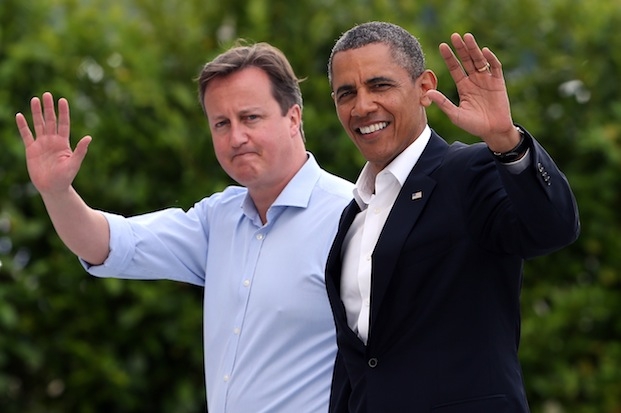After David Cameron’s decision to seek parliamentary approval for air strikes against Syria, two lobbies came charging in, banners aloft. Now their attention has moved to Barack Obama’s decision to seek approval from the US Congress. Though on opposite sides of the argument, these two groups have something in common, and it depresses me.
Both see democracy as capable of securing a right decision. Neither sees democracy as capable of making a decision right.
Let me explain. The anti-interventionists are of course delighted (as was I) that our Prime Minister sought a Commons mandate for military action. They’re even more delighted now that Parliament has said no. They may not care much for Mr Cameron himself, nor did they like the way Tory whips tried (unsuccessfully) to dragoon their MPs into acquiescence. But they all agree that Cameron was right to ask Parliament.
What happened at Westminster last week is therefore a source of pride and satisfaction to those we may call the doves on Syria: ‘the people,’ they coo, ‘have spoken’ (or spoken through the medium of their parliamentary representatives). Hooray for democracy.
‘Two cheers for democracy,’ say the pro-interventionists (let us call them the hawks): ‘but this time it hasn’t worked properly’. Hawks cannot of course regard an unwanted outcome as a reason for losing faith in democracy itself; neoconservatives are supposed to be passionate about government by the people, and what Cameron did at Westminster and what Obama plans do to with Congress is what liberal interventionism is all about: respecting the people, an example of the very values neoconservatives seek to spread. So the hawks have been careful not to criticise the fact of consultation.
But the actual result has displeased them mightily. Unable to complain about the democratic principle, they have fallen instead to complaining about the process. Cameron called the vote too early, they say. Some Tories (they say) voted against intervention out of irritation at being hauled back from holiday; or because the whips hadn’t had time to talk to them all; or because the case wasn’t properly made out. The hawks rail against the ministers and Tory backbenchers who failed to get back in time, or didn’t vote. Or they blame it all on Ed Miliband for ‘betraying’ Cameron by whipping Labour against the motion.
They criticise both Miliband and Cameron for being ‘weak’. They would have liked to blame it all on coalition and the Liberal Democrats, but the arithmetic unfortunately doesn’t support them and Mr Clegg is of the hawkish tendency; so they complain that his grandstanding put some Tories off.
They complain about everything, in fact, but the awkward central truth. The awkward central truth is that Cameron failed to get Parliament’s approval because Cameron asked for Parliament’s approval. This they dare not criticise, and fall back on muttering that he asked Parliament in the wrong way.
The philosophical tangles that neoconservatism gets itself into are always a delight to tease out, but my side are no better. Imagine a dozen Tory MPs had voted differently last week, and the result had been a narrow yes to intervention rather than a narrow no. Do you honestly think we doves would be cooing, ‘The people have spoken. Tally ho! Launch those missiles!’? Of course not. The doves would be doing what the hawks are now reduced to doing. They would be complaining about the whipping, complaining that by calling a snap debate Cameron bounced the Commons into war, complaining that insufficient information about the risks and the complexities was provided — and demanding the promised second vote to give them another chance of blocking military action. Finally they would be complaining that MPs do not anyway represent British public opinion.
That was last week’s wrangle over democracy. This week’s will presumably be about the congressional votes now imminent. The doves are naturally delighted that the President has stayed his hand and asked for congressional approval first. But if he gains it, will they say ‘Three cheers for US democracy?’ No, they will say that Congress doesn’t properly represent American public opinion.
If Obama fails to gain approval, neoconservatives will say he took a dangerous gamble and lost. They will fall back, as both the left and the right always do when thwarted by a public opinion, on the Marxist doctrine of the False Consciousness of the Masses: that the people would be with us if only the people had not been misled. The one observation that will not occur to them is that perhaps Obama does not want to go to war without democratic approval. Congress will not have cheated him of something he desired, but caused him no longer to desire it.
For this is what democracy can do, if only ideologues of left and right would respect it. Democracy is not just a means of selecting the right actions or avoiding the wrong ones: it can make an action right or wrong, by virtue of its having been chosen or rejected by the people. War declared on behalf of a nation that has not consented to it has a morally different quality from war that carries that consent. I do not say that consent alone can make folly wise or wisdom folly, but that there are sometimes decisions which are not obviously wise or foolish, which involve many unknowns. They may be finely balanced. Popular consent may tip that balance.
I hope America doesn’t decide to attack Syria. But if she does, and Congress have sanctioned the attack, I shall not call the attack illegitimate: I shall simply wish things work out well while fearing they may not. I will still think it right to have asked Congress, and accept it is right to respect Congress’s decision. Should Congress block an attack, I hope neoconservatives will respond not by spraying out accusations of ‘weak leadership’, but instead respect the strength of a leader prepared in some great matters to take guidance from the people he leads.







Comments